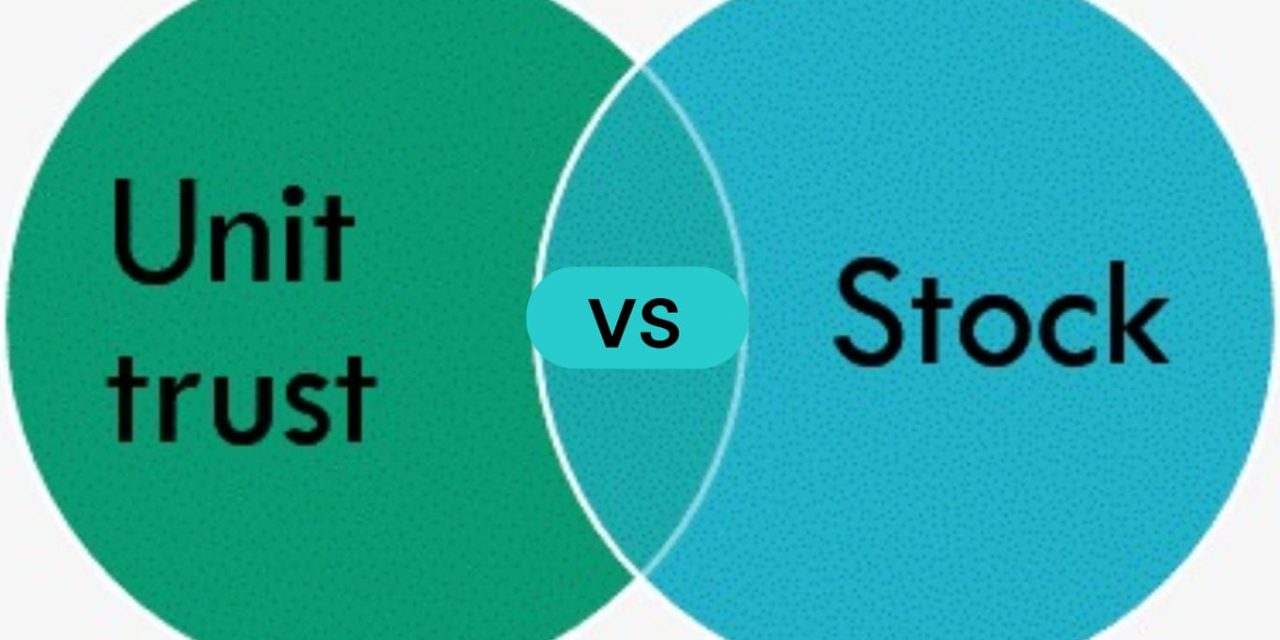While many like to think or say investing has recently become popular in Zimbabwe I don’t that is true. We have to be honest about where we are coming from and where we are going. The almost identical twin occurrences of the 2008 and 2019 periods where savings were decimated left people with little to no trust in the system but also saying “fool me once, shame on you, fool me twice shame on me”. All this to say people have become wiser about investing and it has been made easier. One way it’s been made easier is through Unit Trust funds, which have been with for almost 2 decades. Trading shares has also become much easier with direct access methods Ctrade and ZSE Direct. Many have questioned what is better, buying into unit trusts or trading equities directly. Let’s try to answer that.
Unit Trust funds
Unit Trust Funds are pooled investment funds that are split into multiple small units. They are managed funds meaning that there is a team of people that work hard to work out the best possible investment targets to bring owners of the fund the best return. Looking at the last Growealth Report we have 21 equity and /or mixed unit trusts. They’ve done a good job of beating inflation as reported by Zim Stat but the performances have been a little questionable when compared to the ZSE that the equity-based ones are invested in. Unit Trusts have the advantage of being funds managed by professionals and requiring little work on the part of the investor. However, they are not the easiest of investments to get into. Despite the great work being done by Growealth and companies like Old Mutual who have added their Unit Trusts to online trading platform Ctrade they still present a bit of complexity. They also lack flexibility as many have lock-in or vesting periods, essentially minimum holding periods before you can cash out. Finally, the fund managers are rewarded for their work and fees are something to look out for when it comes to any managed fund.
ZSE
Investing in the ZSE has never been easier than it is now. Added to the traditional method of buying through brokers are digital trading platforms C-Trade and ZSE Direct. Through these platforms, people can invest directly from the comfort of… Well, wherever they are so long as they have an internet connection or USSD access in the case of C-Trade. That’s the easy part. Picking the right companies to invest in is a responsibility that rests squarely on the shoulders of the investor still. Depending on how deep you want to go into it this may involve several hours per week. That’s just time spent on identifying suitable investments. Then you have to spend even more time handling the trading of the shares. This has been complicated for many of late with the ZSE experiencing technical challenges. To be fair Unit Trust Fund managers would’ve faced the same problem in the period. Depending on the counters chosen to invest in the ZSE has traditionally required investors to buy shares in lots of 100 and multiples thereof. Recently an odd lots board was introduced which allows investors to buy between 1 and 99 shares subject to availability. This certainly eases the minimum amount threshold that was previously restrictive. In trading on the ZSE directly the investor has the choice of when to enter and exit easily, for as long as they find takers on the opposite side.
Performance

There’s not much to separate the ZSE from Unit Trusts in terms of returns. The Unit Trusts average on the graph represents the average Year To date return of Unit Trust Funds that invest in Equities or a mix of equities and other investments. So it excludes money market and property unit trusts. Fund managers haven’t done much better than the ZSE average to date (31 October 2021). The small-cap and medium Cap indices have provided returns well above the unit trust average. Of course, the reality is the indices cannot be bought altogether as things stand to save the Top Ten through the Old Mutual Top Ten ETF. It is fair to say that the average share trader or investor will achieve returns below the ZSE average. And many investors will be less than average.
The verdict
The average investor is likely not to be fair as well as the average of the market. The fund managers have on average done better than the ZSE average. Of course, half of the investors are less than average. And this is likely where many of us will fall. Unit Trust Funds will certainly provide better returns for investors who are early in their journeys or lack the time to learn what they need to learn to continually invest wisely. With experience and practice, it is possible to outperform fund managers but it may take a lot more work and expense than paying the fund managers.








